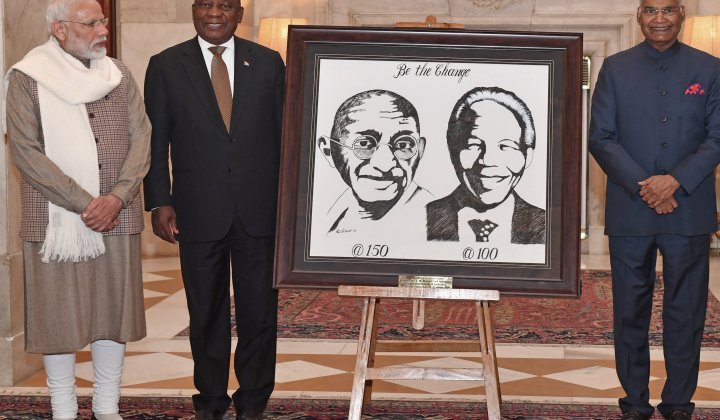As Acumen went to press, thousands of supporters of a campaign by a group of civil organisations, including labour unions, were due to march against corruption. The campaign was a response to what organisers termed “corruption denialism” by the ANC, along with President Zuma's reaction to the Nkandla debacle. They said their “dream” was to get “hundreds of thousands of people representing the full spectrum of SA society” to protest against corruption.
By definition, “the full spectrum of … society” includes business. The role of business in the fight against corruption is vital. For example, business leaders can no longer be content with raising uncomfortable questions with government behind closed doors for fear of losing public sector contracts. This also presumes that there are regular substantive and robust discussions between government and business about matters of national interest. But all indications are that sadly this is not the case despite the fact that government has a number of panels and forums that can be used for appropriate engagement.
Business leaders would be among those sections of society who agree that corruption undermines the values enshrined in our constitution. Corruption destroys value. If we agree, as we are frequently told, that business is about creating value, then surely the voice of business against corruption must be heard loud and clear?
However, if we examine how business and government have related in recent years, we find a glaring gap in trust. The trust account between the two sides is in the red, having sunk to record levels. No matter whose fault it is, business should grab the proverbial bull by the horns and lead the way into restoring mutual trust by reaching out to government. How many CEOs of top SA companies regularly meet government leaders as part of their stakeholder relations management to discuss important issues? Occasional meetings and engagements may happen at Davos or in Cape Town during World Economic Forum sessions. But there is more value in constant and direct one-on-one or face-to-face dialogue.
We are the nation that successfully negotiated a way out of apartheid’s wilderness into democracy. Yet our business leaders seem unwilling to use that experience to establish honest and open channels of communication and viable partnerships with the public sector.
The apparent reluctance by business is baffling because many companies have defined accountability, integrity and honesty as key values and say they subscribe to ethical behaviour. In fact many spend time, energy and money to embed appropriate behaviour to support these values in internal employee campaigns.
However, when it comes to speaking openly against public sector corruption, business leaders tend to be scared and prefer quiet diplomacy. Chasing government business and turning a blind-eye to destructive corruption is unwise: ultimately, we will all be swirling in the cesspool of eroded value. That is neither ideal nor sustainable. Business is under pressure from shareholders to perform, produce results and deliver reasonable returns to investors but should this be achieved at the expense of values that we desperately need for building a prosperous society for all?
Nor do our corporates tolerate corruption within their own ranks. Many have clearly articulated codes of ethics and conduct, and other resources like anonymous tip-off lines. When such companies discover corruption or fraud, they take strong action to root out malpractice, mismanagement or wrong-doing.
Some companies have even reportedly walked away from corrupt tender processes. Laud them for their actions and use them as examples. But we need more similar behaviour that should be shared openly in our country.
Business leaders should muster more courage to stand up and speak up against public sector corruption if they want to sustain the success and growth of their companies. It is not up to others, like civil society or law enforcers, to deal with corruption. It is up to business - each and every one of us, in fact - to blow the whistle and expose corruption wherever it rears its ugly head.
Business leaders must walk their company’s talk of values and rightfully demand and expect the highest kind of values-based behaviour from all their stakeholders, including government and related public sector entities.







